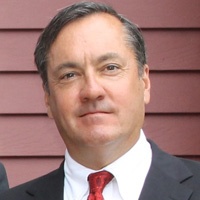Greenwood Juvenile Law Lawyer, Delaware
Not enough matches for Greenwood Juvenile Law lawyer.
Below are all Greenwood Criminal lawyers.
Timothy G. Willard
✓ VERIFIEDAccident & Injury, Criminal, Real Estate, Estate
Need Legal Help. Get Results.
Fuqua, Yori and Willard has offices in Georgetown and Rehoboth. The firm has deep roots in Sussex County, is well connected and will get results.
FREE CONSULTATION
CONTACTDianna E. Louder
Personal Injury, Medical Malpractice, Employment, DUI-DWI
Status: In Good Standing Licensed: 8 Years
Kenneth J. Young
Accident & Injury, Criminal, Workers' Compensation, Personal Injury
Status: In Good Standing Licensed: 43 Years
Scott Emory Chambers
Real Estate, Municipal, Criminal, Accident & Injury
Status: In Good Standing Licensed: 11 Years


